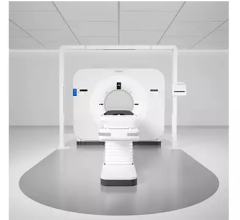
February 25, 2015 — Physicians treating patients with complex tumors will have more advanced treatment options at Seattle Cancer Care Alliance Proton Therapy, a ProCure Center. The center will now offer pencil beam scanning (PBS) in its state-of-the-art gantry room. The combination of proton therapy with PBS technology enables physicians to better shape and direct radiation to the tumor, opening the doors to treat a wider variety of cancers.
“PBS is the most advanced way to deliver proton radiation and will allow us to sculpt protons for treating more complex tumors, such as in the head and neck, lung, abdomen, and pelvic areas,” said Smith ‘Jim’ Apisarnthanarax, M.D., a radiation oncologist at SCCA Proton Therapy.
SCCA Proton Therapy has also recently become the first proton center to use an advanced breath-hold device that aids patients in their ability to control breathing during radiation treatment. The Active Breathing Coordinator (ABC) device may be used when treating tumors in the chest or abdomen that move with breathing. It assists patients with systematically holding their breath before or after they’ve breathed out.
During this brief time, the ABC device makes the tumor a stationary target, allowing the treatment to be even more accurate, sparing surrounding tissue. The device’s ability to control breath both on inhale and exhale allows physicians to treat a range of tumors.
In addition, University of Washington Medicine physicians and SCCA Proton Therapy physicists are working together to upgrade the process for developing PBS patient treatment plans with RaySearch Laboratories‘ advanced treatment-planning and dose-tracking software platform, RayStation. RayStation combines the capabilities of traditional imaging such as computed tomography (CT), positron emission tomography (PET) and magnetic resonance imaging (MRI), with contouring and 4-D compatibility. Other features include multi-criteria optimization, dose tracking, treatment adaptation and near-real-time deformable image registration.
“Providing patients with the best treatment possible is our No. 1 priority and we believe investing in these advancements allows us to provide them with the highest levels of care,” said Ramesh Rengan, M.D., medical director at SCCA Proton Therapy. “These innovative technologies will make treatments more effective for patients, while shortening the overall treatment course for select cancers.”
For more information: www.sccaprotontherapy.com


 November 04, 2025
November 04, 2025 









